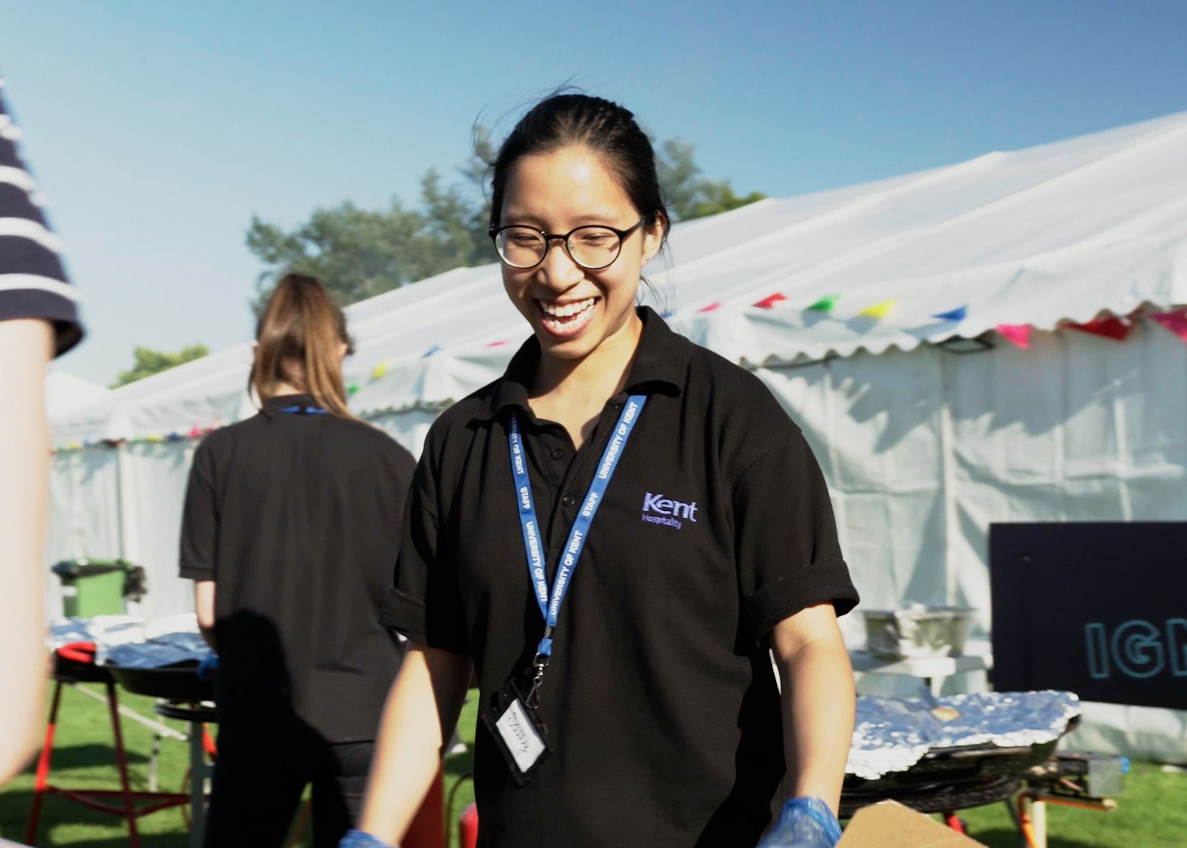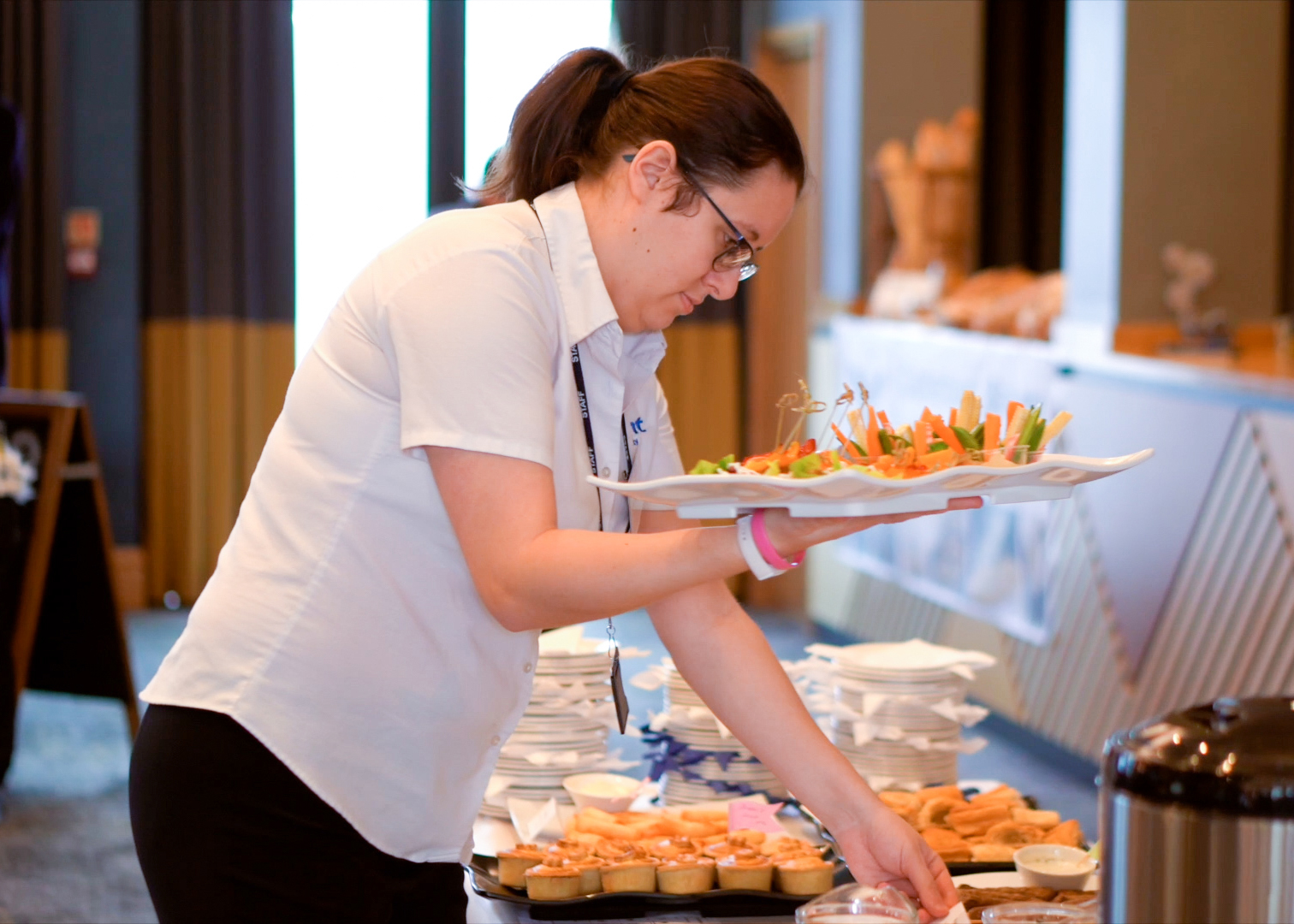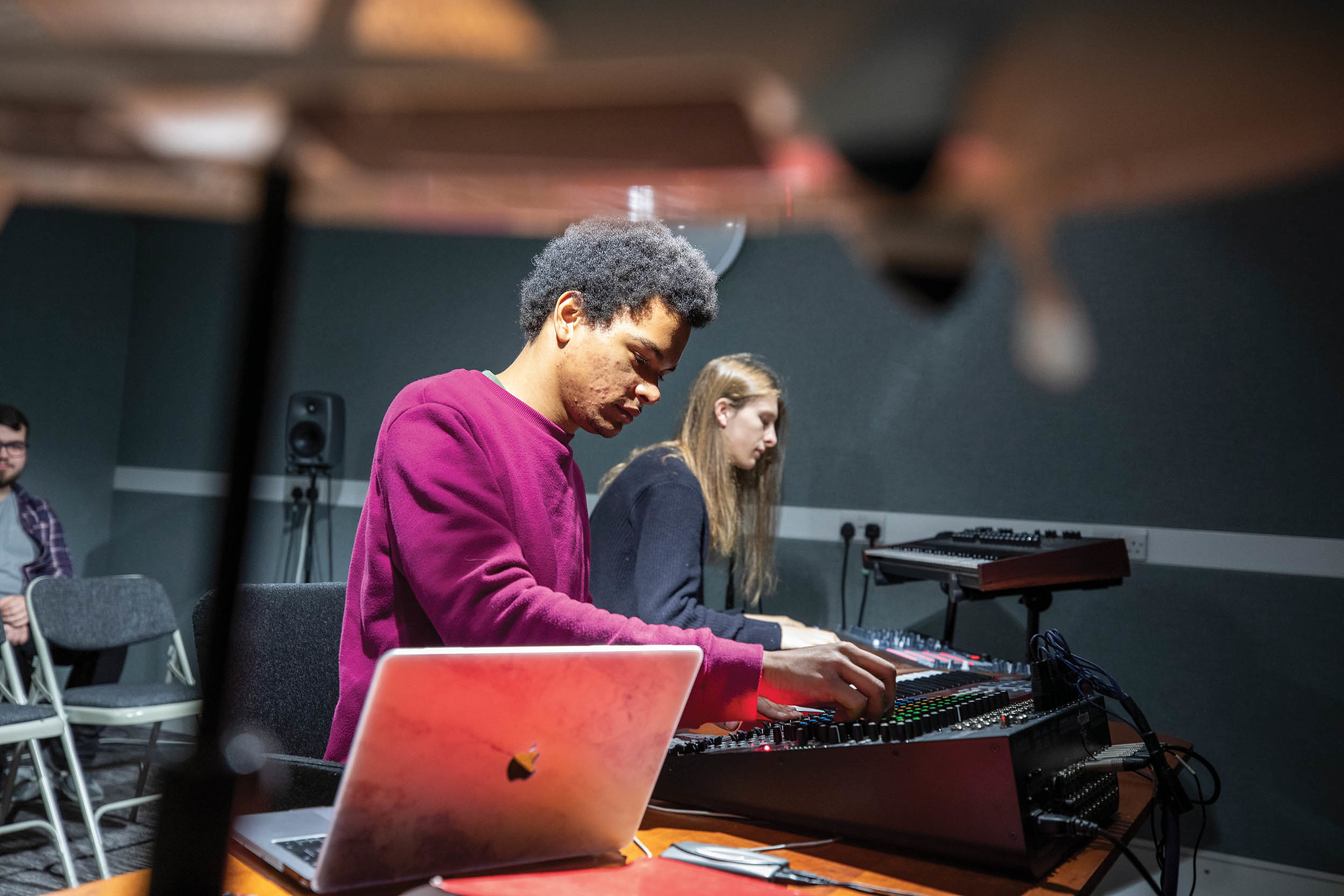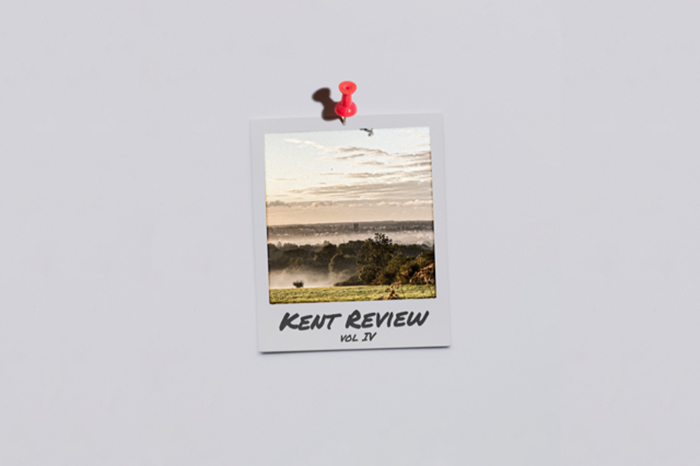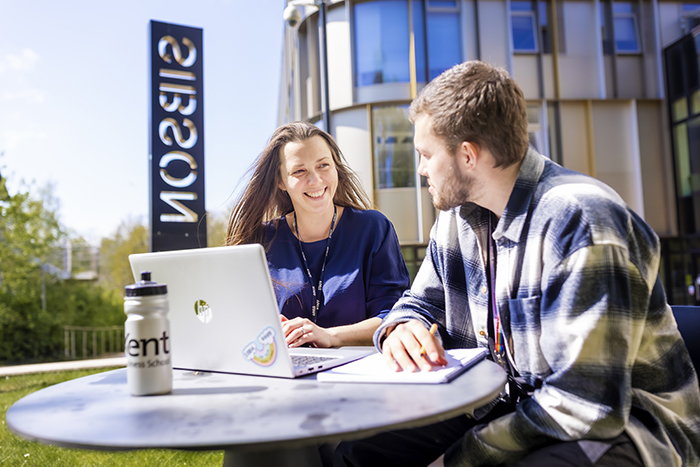Our academic staff reflect on their experiences as PhD students.
A guest blog by the team at Togetherall.
Togetherall is an anonymous online peer-support community, managed by clinical professionals 24/7 and is free to all students and staff at the University of Kent, including PGR students who can register online.
At Togetherall we know how powerful sharing experiences and peer support can be, so we asked academic staff at Kent to reflect on their own PhD journey and what they wish they knew back then. Read the advice from others who have been in your shoes.
“Am I doing something worthwhile here?”
One staff member felt this a lot throughout their PhD journey. When your research feels like it’s going sideways, it’s easy to second-guess yourself.
If you’ve ever felt lost or lacking direction, try some of these tips from fellow academics below.
- When motivation wanes, remind yourself of why you are doing this work. Each day is getting you closer to your goal.
- Do active, useful, vaguely PhD-related things, like volunteering and activism linked to your research topic. A grounding in the ‘real world’ will help you to stay sane and keep you joyful about your work.
- Every day, write down 5 things (no matter how small) you have achieved. Focus on those, rather than on the list of things to do.
Your PhD “does not define who you are.”
While it may not feel like it at times, your work does not define you. It’s one facet of your identity, but there are so many aspects and layers to who you are as a person and the uniqueness you bring to the world.
One professor stated they had to remind themselves constantly that, “your PhD is not your life.” It is a part of who you are, but it’s not who you are.
Getting perspective can be really difficult, but if we can find interesting activities that allow us to be at the edge of our comfort zones, we can feel better and more grounded.
If you feel like you’re in need of a fresh cup of perspective, try some of these tips from your professors.
- Remember that you can have a good life outside of academia. Your self-worth does not depend on being valued by this group of people for doing these things.
- Have a life outside the PhD, and outside academia. Academia is too precarious for all your energy to be put into it. You need other things to turn to when you get a paper rejected, or progress is slower than you would like.
- Success in academia is not a measure of merit. Being good helps, but it doesn’t guarantee anything. Stop measuring yourself against career success.
Academia is “famously bad” at “setting boundaries between work time and rest time.”
It can be really hard to prioritise yourself over your work in academia. Your journey may be filled with unique opportunities, pressure, and excitement, which can make it hard to tear yourself away from your work.
Feel like you need help prioritising rest? Check out what these academics said below on the importance of resting and what it can look like.
- Prioritise rest as rest will enable your brain to work better, make you more productive, give you perspective.
- Expect to have bad days where you don’t achieve much but don’t push on a bad day – take a break instead.
- Go home, hang out with some friends, call your loved ones, and book a holiday!
- Invest in yourself with nutritious food, exercise and rest.
“Don’t try to solve your problems on your own.”
Getting your PhD can be a lonely experience at times, which can contribute to self-doubt and burnout. Professors said they wish they would have laughed more and shared their frustrations with friends to help them through it.
If you feel like you’ve been isolating yourself, check out these tips and reminders from academics who have been there before:
- Find friends and people you can share your frustrations with. Doing your PhD in isolation is the absolute worst.
- Find your tribe of fellow postgrads, and if all else fails have a get together and give yourselves a limited amount of time for a good old moan!
- Reach out to others. They may need you. You may need them.
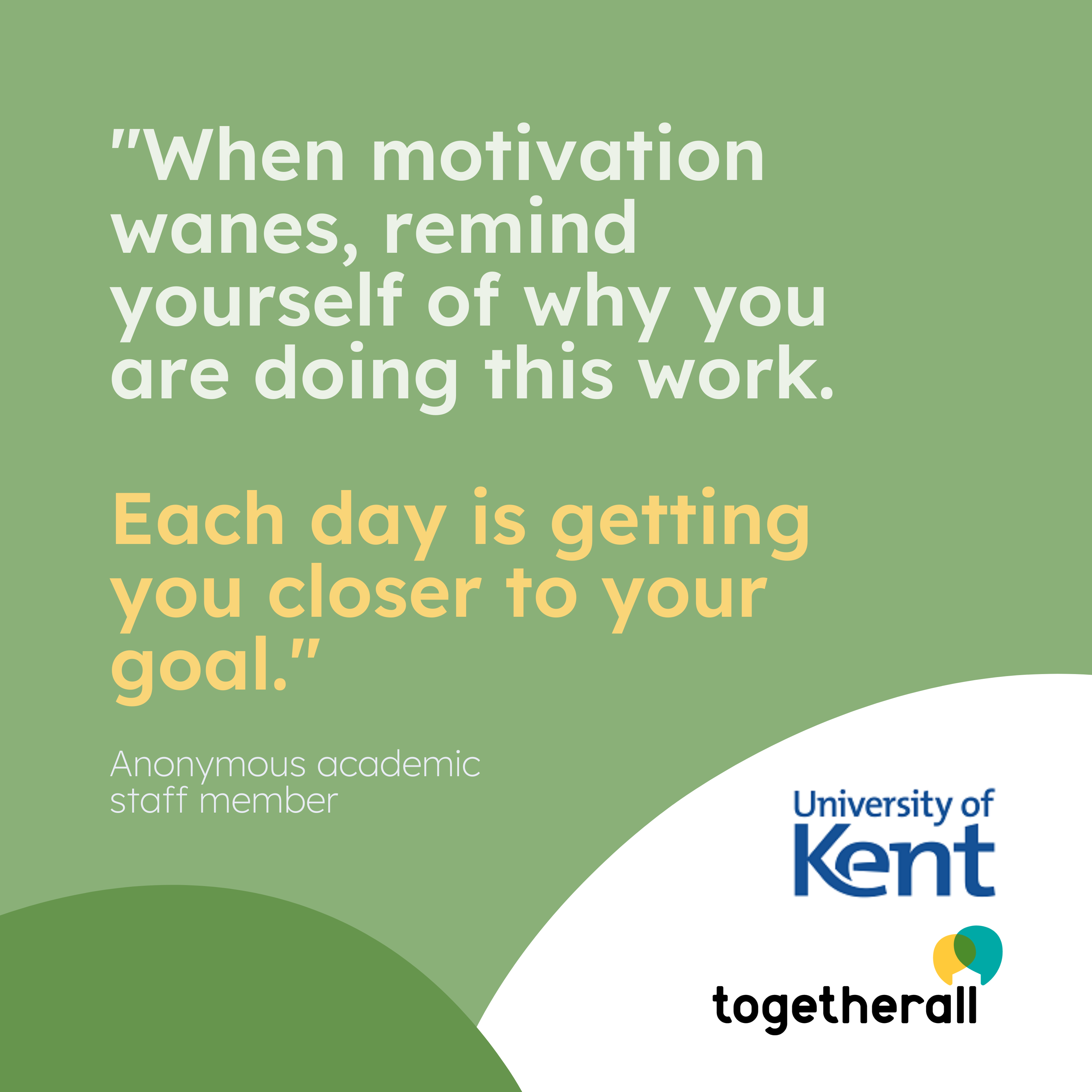
“It’s ok to feel lost and lonely.”
It can sometimes feel like everyone else is in control of their life and finding things easy, but this is rarely the case.
If you take the time to share with others, you’ll see that everyone struggles with something. Their struggles may be different than yours, but everyone has challenges.
If you remember one piece of advice from a professor reflecting on their PhD journey let it be this:
“When you conduct your research, it is OK to feel lost and lonely. All of us did, we just tell you after we graduate. Because while we were doing the PhD, we were ashamed to admit it. I realize now that I should have spoken up and there was not shame in what I was feeling. It was normal and there was help out there. I just needed to ask.”
You’re not alone. There are a range of support services available at Kent.
You also have FREE access to the Togetherall community where you can anonymously share your story and get and give support to others who understand what you’re going through.
The Togetherall community is managed by clinical professionals 24/7 and access is immediate – there are no waiting lists. Find out more about the Togetherall community.


